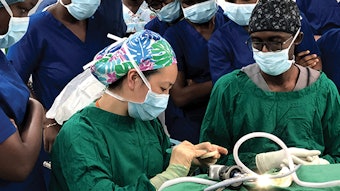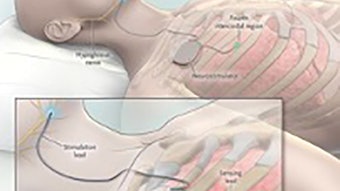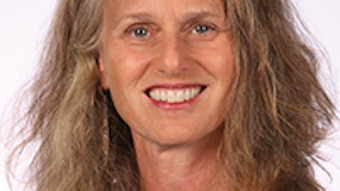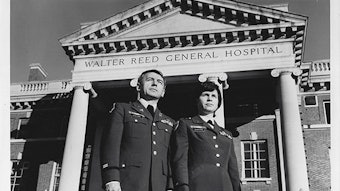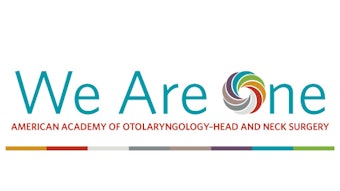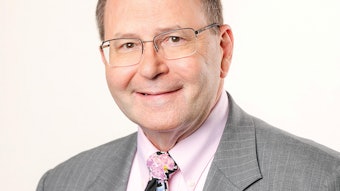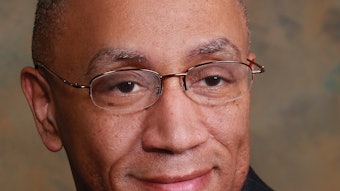Geriatric-Specific Otolaryngology Approaches
For decades, pediatric otolaryngologists have taught that children are not just small adults and that their care requires adopting unique approaches. It has become clear that geriatric patients are not just old adults but individuals who require diagnostic and therapeutic strategies different from those used for younger adults.

Robert T. Sataloff, MD, David E. Eibling, MD, Michael M. Johns III, MD, Karen M. Kost, MD, Brian J. McKinnon, MD, MBA, MPH, Kourosh Parham, MD, PhD, Steven M. Parnes, MD, G. Carl Shipp, MD, and Ozlem E. Tulunay-Ugur, MD, for the ASGO Executive Council
For decades, pediatric otolaryngologists have taught that children are not just small adults and that their care requires adopting unique approaches. It has become clear that geriatric patients are not just old adults but individuals who require diagnostic and therapeutic strategies different from those used for younger adults. Caring for them optimally requires understanding their physiology; the otolaryngological and surgical consequences of systemic disease, polypharmacy, age-related sensitivities to medications, effects of cognitive impairment on treatment selection; and the many other issues unique to the elderly adult. A comprehensive review for otolaryngologists was copublished by Thieme and the American Academy of Otolaryngology–Head and Neck Surgery Foundation (AAO-HNSF)1 in the book Geriatric Otolaryngology (2015). The book highlights geriatric otolaryngology issues, including the science of aging, epidemiology, geriatric syndromes, outpatient care and outpatient surgery risks, age-specific preoperative evaluation, hearing loss, tinnitus, dizziness, sinonasal disease, taste and smell disorders, allergy, dysphonia, dysphasia, sleep disturbance, facial plastic surgery, oral cavity disorders, cutaneous malignancies, head and neck cancer, and cognitive assessment.
Acquiring such knowledge is important for otolaryngologists practicing in the 21st century. In 2006 500 million people in the world (8 percent) were 65 or older, and by 2030 the number is expected to be 1 billion (12.5 percent). Predictions indicate that 20 percent of the U.S. population will be 65 or older by 2030, of which 14 percent will be 85 or older. The number of people 100 and older has doubled every decade since 1950. Of people born now, one in 20 males and one in 10 females are expected to live past age 100. Hence, an increasing number of our patients will be geriatric, and we need to prepare to care for them well.
In addition to an increase in the number of geriatric patients, we also must consider the increasing number of geriatric doctors. The American Society of Geriatric Otolaryngology (ASGO) has addressed this important topic during several of its meetings, particularly with panels such as “The Aging Otolaryngologist” and “Retirement and Life after for an Otolaryngologist.” There have been publications on the aging physician in our literature, as well.2 It is clear that there is no relationship between an older physician’s self-assessment of cognitive function and objective assessment. However, objective measures to assess physician competence that correlate with patient outcomes are lacking. Yet, physicians are working longer. So, methods to predict decrease in performance are needed badly, but current approaches lack evidence that test results correlate with the clinically relevant information sought.
Many older otolaryngologists recognize when it is time to slow down. However, neither our residencies nor most of our institutions provide training on how to plan for successful retirement by addressing finances, physical changes, psychosocial changes, transition planning, and other topics. Hospitals and universities could help with such training and by offering transition flexibility, resisting ageist stereotypes, minimizing part-time work barriers, creating post-retirement career opportunities (teaching, peer support, and others), and developing education programs for physicians of all ages that highlight the importance of retaining older physicians in the workforce. Older physicians not only provide invaluable knowledge and experience, but they are often responsible for a substantial number of referrals and for institutional reputation. Moreover, it commonly takes more than one doctor to replace retiring “old-timers”; institutions therefore have practical incentives to become involved.
ASGO, the AAO-HNSF Geriatric Otolaryngology Committee, and other organizations are working hard to increase knowledge and raise awareness regarding aging issues important to our patients and our workforce. We encourage including geriatric content in our training programs and examinations. Involvement of all otolaryngologists and allied healthcare personnel is welcomed and encouraged. Organizations such as ASGO, the AAO-HNSF, and the American Board of Otolaryngology – Head and Neck Surgery should take the lead in ensuring that all otolaryngologists develop the competencies necessary to manage geriatric patients optimally in the coming decades.
References
- Sataloff RT, Johns MM, Kost KM (Eds). Geriatric Otolaryngology. Thieme Medical Publishers and the American Academy of Otolaryngology–Head and Neck Surgery; 2015.
- Sataloff, RT, Hawkshaw MJ, Maitz E, Kutinsky J. The aging physician and surgeon. Ear Nose Throat J. 2016;95(4,5):E35-48.
